Breast Lift in Tunisia
Search and Compare the Best Clinics and Doctors at the Lowest Prices for Breast Lift in Tunisia
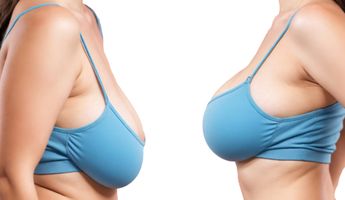
Find the best clinics for Breast Lift in Tunisia
With Medijump you can browse 9 facilities offering Breast Lift procedures in Tunisia. The cheapest price available is $1,706 in Monastir. And for the cheapest price globally, prices start from $85 in Czech Republic.
Breast Lift in Monastir
Price: $ 1,706
Breast Lift in Tunis
Price: $ 1,753
Czech Republic offers the best prices Worldwide
Price: $ 85
From 4 verified reviews
Samir Derradji, 18 March 2018
Hello I follow sick dalger Algeria I ask you a preforma for an opairation on the colon .Thank you
From 11 verified reviews
Craig Mills, 30 July 2019
Excellent private health care looked after my soon after he drowned in sahara beach hotel this month would definatly recommend being cared for there staff were amazing
From 37 verified reviews
Saoussen Saidani, 13 June 2020
My 12 year old daughter Lina has had surgery Pancreas tumorHeavy Operation which went very wellI thank all the staff of the Pasteur clinic for their hospitality and their hygiene ...I thank the doctors who attended the operation and in particular the surgeonAYADI Sofiene who accompanied us from the start for his professionalism as well as DR Walid Miraoui. The discovery of this tumor is done in a very short time a week to manage allThe support of Surgeon Ayadi Sofiene was really perfect as a parent we were reassured and above all in confidence.And especially I thank them for the moral support of My Daughter Lina who kept the smile until the end and who It is found in Total confidenceThank you so much for saving our childMr er Mrs Saidani
From 11 verified reviews
Toumi Mondher, 02 April 2019
The Department of Extraction and Billing at the Center of Imaging and Radiology, two patients, treated me with a reputation as a Tunisian clinic, and I bear the responsibility to speak this
From 9 verified reviews
Ibtyhel Ben bassine, 19 April 2019
I slept my little girl on Thursday, March 8, 2018, was at Top, my gygy, the nurses .... they put me in a calm and clean environment with a service of excellence .. thank you prts and especially pr Dr. hichem
Clinique Taoufik, located in Boulevard Mohamed Bouazizi, Tunis, Tunisia offers patients Breast Lift procedures among its total of 225 available procedures, across 24 different specialties. Currently, there's no pricing information for Breast Lift procedures at Clinique Taoufik, as all prices are available on request only, whilst the national average price is approximately ฿83,220. There are many specialists available at the Clinic, with 10 in total, and they are accredited by ISO 9001:2008
Clinic Apollon, located in Boulevard Mohamed Bouazizi, Tunis, Tunisia offers patients Breast Lift procedures among its total of 90 available procedures, across 1 different specialties. Currently, there's no pricing information for Breast Lift procedures at Clinic Apollon, as all prices are available on request only, whilst the national average price is approximately $2,313. All procedures and treatments are undertaken by just a small team of specialists, with 2 in total at the Clinic, and they are not accredited by any recognized accreditations institutes
Cosmeticare Travel, located in Boulevard Mohamed Bouazizi, Tunis, Tunisia offers patients Breast Lift procedures among its total of 34 available procedures, across 4 different specialties. Currently, there's no pricing information for Breast Lift procedures at Cosmeticare Travel, as all prices are available on request only, whilst the national average price is approximately $2,313. There is currently a lack of information available on the specialists practicing at the Hospital, and they are not accredited by any recognized accreditations institutes
Aesthetica Tour, located in Boulevard Mohamed Bouazizi, Tunis, Tunisia offers patients Breast Lift procedures among its total of 42 available procedures, across 9 different specialties. Currently, there's no pricing information for Breast Lift procedures at Aesthetica Tour, as all prices are available on request only, whilst the national average price is approximately $2,313. All procedures and treatments are undertaken by the lead specialist at the Hospital, and they are not accredited by any recognized accreditations institutes
- Home
- Tunisia
Compare Before & After Photos of _procedure_photos.phpBreast Lift
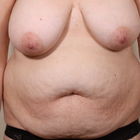
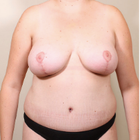
Front view
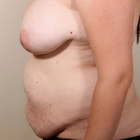
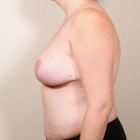
Full-side view

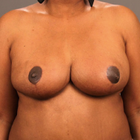
Front view
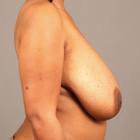
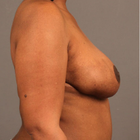
Full-side view
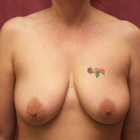
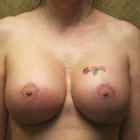
Front view
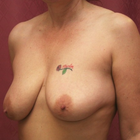
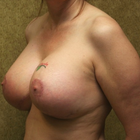
Half-side view
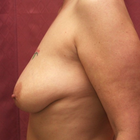
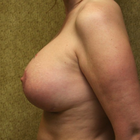
Full-side view
WHY US?
At Medijump, we're making medical easy. You can search, compare, discuss, and book your medical all in one place. We open the door to the best medical providers worldwide, saving you time and energy along the way, and it's all for FREE, no hidden fees, and no price markups guaranteed. So what are you waiting for?

Free

Best Price

Widest Selection

Risk-Free
What you need to know about Breast Lift in Tunisia
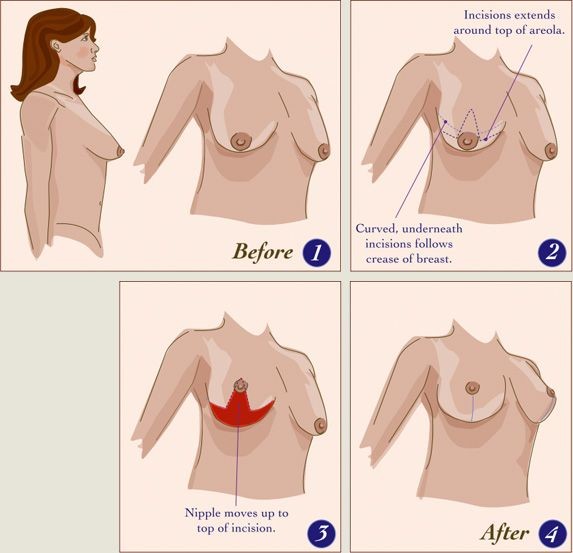
Commonly known as a Mastopexy, the breast lift is a surgical procedure to raise sagging breasts by modifying the contour and elevation. Breasts look saggy due to overstretched suspensory ligaments of cooper, excessive tissue, and skin. Lactation is also a cause of drooping breasts. During this procedure, a plastic surgeon removes excess skin and tighten the remaining tissue to create a more contoured and shapely breasts. Some patients may choose to have breast implants added as part of the procedure to give the breasts more volume.
After the surgery, you can expect to have round and elevated breasts. However, this surgery is not for everyone, you should talk to your doctor openly before opting for it. Your physical conditions and history are considered before going for surgery. Your surgeon will determine whether or not you are a good candidate for breast lift. For patients over the age of 40, a breast scan might be necessary.
A breast lift won't significantly change the size of your breasts. However, it can be performed in combination with breast augmentation or breast reduction.
What is the cost of Breast Lift in Tunisia?
Due to a number of variables, including the complexity of the surgery, the surgeon's experience, and the location of the medical centre, the cost of the Breast Lift within Tunisia may vary greatly. Typically, the anticipated cost might be hundreds of dollars.
However, it is important to emphasise that the cost should not come at the expense of the quality of healthcare, particularly when it comes to surgical procedures. For the greatest outcomes, it is advised to work with a reputed medical facility and communicate with a skilled surgeon.
What does a Breast Lift Procedure Involve?
A number of techniques are available for a breast lift. They differ in the location of incisions. The one suitable for you is chosen according to the condition of your breasts. The procedure begins with making you lay in the supine position. You are anesthetized, so that you may not suffer from pain during the surgery. After this, an incision is given around your areola descending down towards the crease where it runs horizontally. Stitches are given inside the breasts to suspend them. Excess tissue is removed. Sometimes, the size of your areola is decreased and nipples are shifted to a higher position. In most cases, the nipple-areola complex (NAC) is preserved to prevent damage to your lactational ability. After your surgeon removes exess skin, tissue, and fat, they put back the skin flap to its place and stitch the incision.
After the surgery, a bandage is applied over the operated area. You are then given a surgical bra to wear. Small tubes are placed near your incisions to drain any fluid or blood. These tubes are removed after several days.
How Long Should I Stay in Tunisia for a Breast Lift Procedure?
Breast lift is a 2 to 3-hour procedure, after which you are moved from the operation theatre to a private recovery room. You are monitored for a few hours, and if everything goes fine you can go home on the same day, assuming no other surgeries were performed at the same time.
After being discharged from the hospital, you have to come for check-ups on a regular basis to ensure that nothing goes wrong. You should remain in Tunisia for at least 7-10 days after the surgery. In this period, your incisions heal and stitches are removed. You can leave when told by your doctor.
What's the Recovery Time for Breast Lift Procedures in Tunisia?
Plan to take 2 to 3 weeks off work for your breast lift surgery. There will be pain and swelling in the operated area and your breasts will appear swollen for almost 2 weeks. There will be redness and pain around your incisions. Your areola and nipple are likely to be numb for a few days.
In the early days, painkillers are given to help you with pain. You might have to wear surgical bras for 2 to 3 weeks, after which, you can wear regular bras. No underwire bras should be worn for at least 6 weeks.
What sort of Aftercare is Required for Breast Lift Procedures in Tunisia?
Following points should be kept in mind to take care of yourself after being discharged from the hospital:
- Visit your doctor regularly for some time.
- Take your medicines as and when prescribed by the doctor.
- Follow a healthy diet plan for a better recovery.
- Ensure the presence of someone with you to look after you.
- Do not wear push up bras for 5 to 6 weeks after the surgery.
- Wear surgical bras in the early few days.
- Avoid excessive movement of your breasts.
- Do not take a bath as long as bandages are there. Wet bandages can be the cause of infection.
- Do not bend.
- Avoid sexual activity for at least 2 weeks.
- Do not lift heavy objects or kids. It can put stress on your stitches, removing them before due time.
What's the Success Rate of Breast Lift Procedures in Tunisia?
According to a survey, 80% of women are satisfied by breast lift surgery. Their bust is restored, and sagginess disappeared. Most people experience long-lasting results, while others might need minor revisions after a few years.
For an in-depth analysis of the Breast Lift procedure with before and after images, watch this short video.
Are there Alternatives to Breast Lift Procedures in Tunisia?
The following are some non-surgical alternatives to breast lift surgery:
- Padded bras: padded bras or push up bras give a rounded contour to your breasts without incisions. Bras lift your breasts up eliminating the droopy appearance. However, this is not a permanent method.
- Vampire breast lift: in this procedure, platelet-rich plasma (PRP) injections are given which restore your bust. This is a 20-minute procedure in which a numbing cream is applied onto your breasts. After they go numb, PRP along with hyaluronic acid is injected into your breasts. It tightens your breasts and lifts them up. Hyaluronic acid increases the efficacy of PRP.
- Laser treatment: high power laser is used to stimulate the growth of collagen. It only targets the outer layers of skin. Hence, rejuvenating the skin only.
- Caci bust treatment: a device releasing electrical impulses is moved over your breasts. It hydrates your skin and gives strength to the tissue. Improving the contour of your breasts.
- Botox: These injections are given into your chest muscles. As a result, these muscles relax. To compensate for these muscles, your back muscles contract, lifting your breasts higher. This can last for 3 to 4 months.
- Thermage: in this procedure, radio waves are used to tighten the skin of your bust. Production of collagen is stimulated which lifts the skin of your droopy breasts.
- Chest exercises: you can do different chest exercises to strengthen your chest muscles. It tightens the skin and raises your breasts. It is more effective if performed under the supervision of an instructor.
What Should You Expect Before and After the Procedure
The preliminary phase before the Breast Lift generally requires an exhaustive health evaluation, which includes a mammogram and the measurement of your breasts. The medical facility will recommend you to avoid drugs that could escalate the risk of bleeding, for instance, Aspirin. They may also request that you refrain from smoking since nicotine can hinder the recovery process.
Post Breast Lift, you are likely to be required to wear a healing bandage or post-surgical bra to reduce swelling and provide support to your breasts during the healing phase. It is possible that a slender tube may be inserted to eliminate any surplus blood or fluid. Normal post-procedure discomforts include pain, bruises, and swelling that can be effectively handled with prescribed pain medication. The medical facilities will issue comprehensive instructions regarding wound maintenance, medicine, and consequent appointments. Participating in arduous activities is advised against for approximately six weeks after the surgery.
Do note that personal experiences with the Breast Lift can vary slightly. The duration of the healing process and the ultimate outcome heavily rely on personal health conditions, lifestyle practices, and compliance with instructions after the operation.
What are Potential Risks of Breast Lift?
There are, however, risks and side effects you need to be aware of. Some of these risks include:
- Infection
- Bleeding
- Scarring
In rare cases, the surgery might not be successful. Failed surgeries leave marks on your breasts which can be subjected to hypertrophy. Also, there might be a difference in the shape of both breasts. In these cases, revisional breast lift surgery is performed
Whilst the information presented here has been accurately sourced and verified by a medical professional for its accuracy, it is still advised to consult with your doctor before pursuing a medical treatment at one of the listed medical providers
No Time?
Tell us what you're looking for and we'll reachout to the top clinics all at once
Enquire Now

Popular Procedures in Tunisia
Prices Start From $208

Prices Start From $89

Prices Start From $931

Prices Start From $76

Recommended Medical Centers in Tunisia for Breast Lift

- Interpreter services
- Translation service
- Religious facilities
- Medical records transfer
- Medical travel insurance
- Health insurance coordination
- TV in the room
- Safe in the room
- Phone in the room
- Private rooms for patients available

- Interpreter services
- Translation service
- Religious facilities
- Medical records transfer
- Medical travel insurance
- Health insurance coordination
- TV in the room
- Safe in the room
- Phone in the room
- Private rooms for patients available

- Interpreter services
- Translation service
- Religious facilities
- Medical records transfer
- Medical travel insurance
- Health insurance coordination
- TV in the room
- Safe in the room
- Phone in the room
- Private rooms for patients available

- Interpreter services
- Translation service
- Religious facilities
- Medical records transfer
- Medical travel insurance
- Health insurance coordination
- TV in the room
- Safe in the room
- Phone in the room
- Private rooms for patients available

- Interpreter services
- Translation service
- Religious facilities
- Medical records transfer
- Medical travel insurance
- Health insurance coordination
- TV in the room
- Safe in the room
- Phone in the room
- Private rooms for patients available

- Interpreter services
- Translation service
- Religious facilities
- Medical records transfer
- Medical travel insurance
- Health insurance coordination
- TV in the room
- Safe in the room
- Phone in the room
- Private rooms for patients available

- Interpreter services
- Translation service
- Religious facilities
- Medical records transfer
- Medical travel insurance
- Health insurance coordination
- TV in the room
- Safe in the room
- Phone in the room
- Private rooms for patients available

- Interpreter services
- Translation service
- Religious facilities
- Medical records transfer
- Medical travel insurance
- Health insurance coordination
- TV in the room
- Safe in the room
- Phone in the room
- Private rooms for patients available

- Interpreter services
- Translation service
- Religious facilities
- Medical records transfer
- Medical travel insurance
- Health insurance coordination
- TV in the room
- Safe in the room
- Phone in the room
- Private rooms for patients available

- Interpreter services
- Translation service
- Religious facilities
- Medical records transfer
- Medical travel insurance
- Health insurance coordination
- TV in the room
- Safe in the room
- Phone in the room
- Private rooms for patients available
Breast Lift in and around Tunisia
About Tunisia
Tunisia is one of the few countries which can cater to everyone and it manages to combine climate, golden beaches, history, and shopping for an “all-around” experience. It has a high standard of healthcare and an excellent reputation for cosmetic surgery. Cosmetic and plastic surgeons are regulated by the Tunisian Ministry of Health and the private clinics have state-of-the-art equipment and English-speaking staff. Tunisia welcomes an ever-increasing number of medical tourists each year, many of whom travel for Breast Lift procedures. Medical Tourists travel from all across the globe, particularly from Europe and neighboring African countries with an inferior healthcare system. Popular medical tourism destinations outside of the capital, Tunis, include Sousse and Mahdia
Popular Parts of Tunisia
- Tunis, the country’s capital, is overflowing with a history that dates from the 4th Century BC. The city is divided into two parts, the old city known as the medina and the new city (or Ville nouvelle in French). Many tourists visit Tunis to see the Archaeological Site of Carthage which is also a UNESCO World Heritage Site. The beautiful Islamic architecture in medina also attracts many tourists to the city.
- Tozeur is known as a home to an enchanting desert oasis, which was a place to rest and refuel for caravans crossing the Sahara. Another main attraction in the city is the medina, where tourists can find lines of beautiful brick-patterned traditional dessert houses. Chott el Djerid, Sahara’s largest salt pan, is a popular day-trip destination.
- Sousse is located on the coast of the Mediterranean Sea. It offers good beaches with a clear blue sea. The city has been fought over by the Romans, Arabs, and Europeans, giving it a colorful history and culture. Sousse Archeological Museum is one of the most visited sites in the country; it has the second largest collection of mosaics in the world.
- Hammamet is the country’s original tourism resort. The city has beautiful gardens filled with oranges, lemons, and other citrus plants. It also has wonderful sandy beaches with crystal clear water. Just like any other city in Tunisia, this city is also brimming with interesting histories. Sites such as The Gafsa Museum and Bardo Museum will give insights about the Islamic faith and culture.
- Douz, also known as “the gateway to the Sahara.” Tourists who want to experience the Sahara Desert come to this city. Take a camel trip or a 4-wheel-drive into the Sahara or see the Museum of the Sahara that has an interesting collection portraying traditional Saharan life.
Weather and Climate in Tunisia
The North of Tunisia has a subtropical Mediterranean climate with mild rainy winters and hot summers. The South and inland areas have a tropical desert climate.
The weather is relatively comfortable throughout the year. Summer starts in June and lasts until August. The average temperature is between 28 °C to 32 °C with July and August being the hottest months. The heat is not as bad on the coast because of the seaside breeze. Be aware that July to September is the jellyfish season.
The heat decreases in autumn and the weather is somewhat more comfortable. There are occasional rain showers in September. The temperature in October can be like summer during day time, but cold at night. October has more rain than September. The season lasts for three months from September to November with an average temperature of around 19 °C to 29 °C.
The weather in winter can be uncertain. The average temperature is between 16 °C and 18 °C, but it can drop to 7 °C at night and below 0 °C in highlands and deserts and a clear sky is rare during this season.
Spring comes in March and the temperature can rise to 20 °C. Mornings and nights are cold; there is still a high probability of rains and thunderstorms at the end of this season.
Getting Around in Tunisia
Tunisia has several international airports. The main airport is Tunic-Carthage International Airport. It has international connections with major European countries and the Middle East. The airport is the hub for Tunisair, Tunisair Express, and Nouvelair. Other airports that have international flights are Enfidha-Hammamet, Monastir Habib Bourguiba, Djerba-Zarzis, and Tabarka-Aïn Draham.
Taxis and buses are available to get to the city center from Tunis Airport. The SNT bus line departs every 30 minutes from the airport, the ticket costs less than 1 TND. There is also the TUT bus which departs every 15 minutes and is more luxurious and expensive.
Airport taxis are available at the airport taxi stand and are usually metered. Always make sure that the driver turns the meter on before riding the taxis. A journey to the city should cost around 5 TND. An extra cost will be added if you have baggage.
Getting around in Tunisia can be done by several transportation modes. Tunisair Express provides domestic flights between Tunis, Tozeur, Djerba, and Gabes. The Train is also available and the national train company in the country is SNCFT that runs modern and comfortable trains from Tunis to Sousse, Sfax, and Monastir. There are three classes of service that tourists can choose. The fare from Tunis to Sousse is between 6 to 10 TND. The long-distance bus is an economical option to travel between big cities such as Tunis, Hammamet, and Nabeul. The buses usually depart every 30 minutes.
Tourist Visas in Tunisia
Citizens of 97 countries (including Australia, China Singapore, the United States, and Russia) can visit and stay in Tunisia for up to 90 days without a visa. Other nationalities are advised to check with their local Tunisia embassy. Tunisia provides an online visa application for nationalities that needs a visa to enter. The eVisa will simplify the process of obtaining travel authorization to enter the country.
Additional Information
-
Local Currency: the local currency is the Tunisian dinar (TND). 1 USD converts to 2.61 TND.
-
Money & Payments: ATMs can be found in most cities and in all tourist areas. Many ATMs have withdrawal limits of 400 TND. Credit cards (MasterCard and Visa) are accepted in major cities and tourist areas. They can be used for shops, car hire, or top-end accommodation. Always make sure to carry cash if you want to travel outside major cities. Tipping is not necessary but will be appreciated.
-
Local Language: Arabic is the official language of Tunisia. French is very common due to the country’s former status as a French protectorate. English is still very limited except in the tourist areas and expensive hotels.
-
Local Culture and Religion: Islam is the major religion with 98% of the population identified as Muslim. There is a small group of Christian and Jews. Since most of the population is Muslim, always remember that the dress code is important in Tunisia.
-
Public Holidays: Tunisia celebrates major Islam holidays. The country hosts several annual festivals throughout the year such as The International Festival of the Sahara, Yasmine Hammamet Festival, and the International Festival of Carthage.
Popular Searches
- Plastic Surgery in Thailand
- Dental Implants in Thailand
- Hair Transplant in Thailand
- Breast Augmentation Thailand
- Gastric Sleeve in Thailand
- Gender Reassignment Surgery in Thailand
- Laser Hair Removal in Bangkok
- Botox in Bangkok
- Dermatology in Bangkok
- Breast Augmentation in Bangkok
- Coolsculpting in Bangkok
- Veneers in Turkey
- Hair Transplant in Turkey
- Rhinoplasty in Turkey
- Stem Cell Therapy in Mexico
- Rhinoplasty in Mexico
- Liposuction in Mexico
- Coolsculpting in Tijuana
- Rhinoplasty in Korea
- Scar Removal in Korea
- Gastric Sleeve in Turkey
- Bone Marrow Transplant in India
- Invisalign in Malaysia
- Plastic Surgery in the Dominican Republic
- Tummy Tuck in the Dominican Republic
- Plastic and Cosmetic Surgery in Poland
- Rhinoplasty in Poland
- Hair Implant in Poland
- Dental Implants in Poland
- IVF in Turkey








